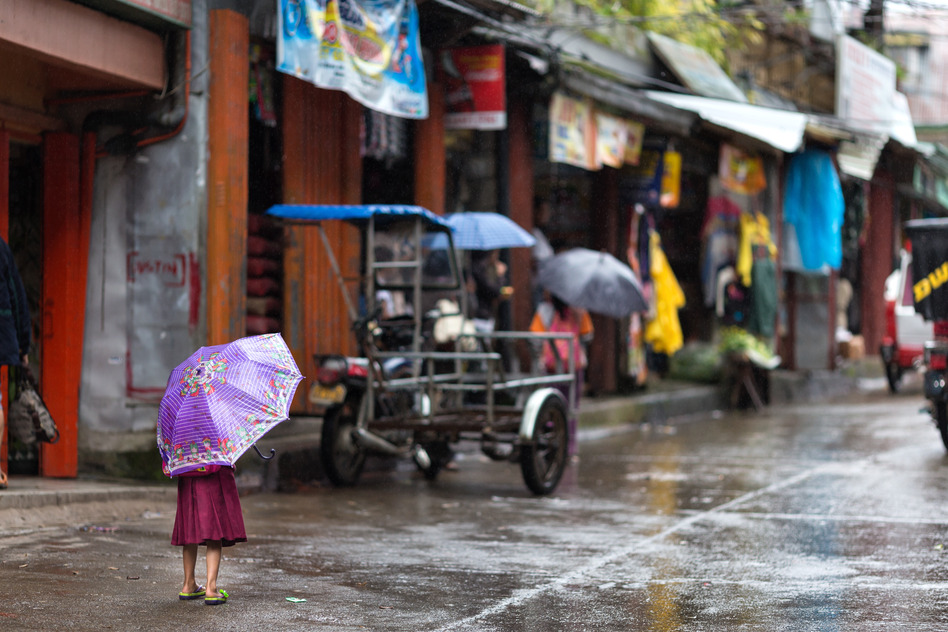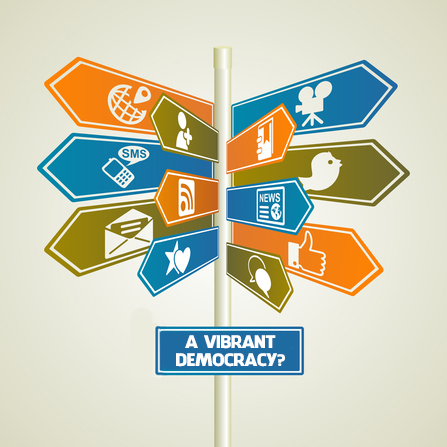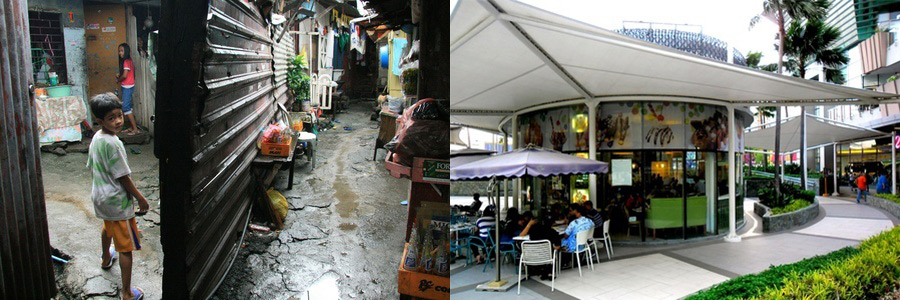
The Philippines is one of the poster boys for democracy’s disintegration in Southeast Asia. Current President Noynoy Aquino’s successive blunders, from pork barrel scandals to the Mamasapano incident, are the latest episodes in the story of a decaying political system. Competition for power remains confined among the elites and political dynasties at the expense of the marginalized poor. Elections are less than a year a way, but the growing distrust in the government dampens the ordinary Filipino’s desire for a Messiah to deliver her from poverty and misery. Does this reneder Philippine democracy hopeless? Is it a fading cause for those who want to change the status quo? A look at the state of democratic politics might shed light on the real crisis of democracy, that is, its futility in severely fracturing the country’s oligarchic system.
Southeast Asia’s oldest, but dubious “democracy”
More than a decade ago, the Philippines was the Southeast Asia’s flag-bearer for democracy. Technically, it had all the prescribed democratic institutions in place, such as the congress and mechanisms for popular participation, from the national down to local levels. Free elections have been the mode for selecting government leaders since 1946. Its history was even immortalized during the 1986 EDSA Revolution where the Filipinos showed how “people power” could peacefully topple the oppressive Marcos regime. This was a period of democratic high in the Philippines that soon inspired other nonviolent revolutions in the region and in Latin America.
However, this admirable image of Philippine democracy abroad proved to be skin deep, especially after a series of coup attempts against the “People Power President” Corazon Aquino. The country is not exempted from Southeast Asia’s “regression from democracy”. 1 Today, there is no sign of a return to democracy in Thailand, while in Indonesia the controversial law on restricting direct local elections has diminished the expectation for democracy to flourish. Cambodia is still under a 79-year-old ruling Cambodian People’s Party that shows no sign of opening the political space. And the world has yet to witness Myanmar’s sincere commitment to democratic transition, a process that is still highly dependent on the fate of Aung San Suu Kyi. The only thing that may be saving the Philippines’ democratic skin is that it is the “best among the weakest” – a description too pejorative to appreciate.
The oldest democracy in Southeast East Asia is indeed impaired. In 1992, David Timberman pointed out a paradox in his book A Changeless Land: Continuity and Change in Philippine Politics: despite a change in the form of government from authoritarian to democracy in 1986, Philippine politics was mired with enduring patterns of corrupt governance, electoral fraud and poverty. This claim still holds. A quick glance at development indicators shows that 25.2 per cent of Filipinos are still living in poverty, lagging behind Vietnam (with its one-party system led by communists) and Sri Lanka, 2 and it ranks 38/100 in the Corruption Perception Index (CPI). 3 Neither figure has significantly improved in the last decade. Socio-economic inequality remains a major issue and taxpayers wonder where their contributions go: to improve public service or to fill politicians’ pockets.

Today’s “People power”
The Filipinos’ once proud democratic innovations are decaying. First, street protests in the metropolis are rendered ineffectual, if not harmful. If Thailand has become notorious as the home of coups, then the Philippines is now viewed as an “EDSA state”. 4 The viability of replicating the first EDSA Revolution in the twenty-first century has lost its appeal after attempts to first oust and then bring back President Joseph Estrada, euphemistically labeled as EDSA II (January 2001) and EDSA III (April 2001) respectively. This exposed the nation’s “crowd mentality” ala Gustav Le Bon. By the time Gloria Macapagal Arroyo was suspected of electoral fraud, questioning her legitimacy to rule, the majority of the Filipinos had lost the vitality to participate, or even appreciate those who tirelessly protested on the streets.
Second, elections have become an apparatus for extracting political power from the voters. Previously ousted leaders or their family members, like Imelda Marcos and her son, as well as Estrada and Arroyo, hold significant government positions. The number of incidences of vote-buying and electoral violence increased, raising doubts about the efficacy of elections to keep dominant political groups and clans in check. Whereas the oligarchs, the few who hold much of the nation’s wealth and power, are guilty of these electoral crimes, their mass market, composed of the the poor and “uneducated” is demeaned as “bobotante” (ignorant voters) by the elite establishment. The “elites” question the political underclasses’ ability to make sound leadership choices because of their vulnerability to selling votes and to populism. With the majority being thus exploited with only a number in control, our elections are nothing short of a mockery of democracy.
Finally, the social media highway certainly provides a quick route to awareness and whipping up a crowd. Some would argue that the Filipinos have found in cyberspace a new alternative to the streets. Here, attacking a corrupt politician to glorifying a celebrity virgin bride is made easier. Political participation becomes an act of indiscriminate knowing and compulsive reaction. It puts a new twist to an old Marxist motto: All netizens unite separately in our own homes, we have nothing to lose but 5GB of our data! The convenience of having just a smartphone as a weapon against the state makes the netizen’s voice appear more piercing than the analog street protesters.

Yet, while the nation might be the world’s social networking capital for four consecutive years, a spectacular Facebook community does not make a vibrant democracy. Whether a pithy message means anything more than a string of ones and zeros remains a big question. In the furious online expression in the Philippines two things transpire: First, demands online call for more policies, more regulations, more laws – a bigger government not bigger people – which downplays democracy’s crucial role in keeping politics from solely being a legislative, rubber-stamping domain; second, there springs a naïve belief that the Internet and other media outlets belong only to the people as weapons against tyranny. As free as they seem, social media networks are little different to other media forms. The highest bidders can propagate their own agendas. Tyrants, moguls, and bogus operators can pursue their interests in guise of serving the public good.
The mass media, moreover, no longer embodies the critical mediator in public discourse. It simply recycles memes to use as clickbait. The emphasis on what is entertaining or, better still, paid for reduces serious political debates to flimsy spectacle, rendering the tagline “objective, critical, in-depth analysis” a meaningless puffery. In sum, the Philippine media landscape reinforces what political philosopher Sheldon Wolin describes as, “the virtual disappearance of the culture of participation and its replacement by a culture of privatism, isolation, and… consumerism”. 5
This is the face of today’s “people power” in the Philippines. Protests, elections and netizenship are the three powerful forces thought to be outside the oligarchic and weak institutions that infest the country’s political system. Yet these things have actually made the people more disenchanted, and their ability to contest is incorporated into a Huxleyan dystopia. What if these tools contribute to the worsening of Philippine politics, rather than flushing away its rotting parts? What if they are transforming spaces for inspiration into mere outlets for the cynical? Or worse, what if the corrupt system has already co-opted these mechanisms to further strengthen their hold on power, silencing voices in the guise of a good listener?

A Tirade of Adjectives
Scholars trying to make sense of Philippine democracy’s paradox find themselves trapped in a predictable formula: The Philippines is democratic but with caveats. The only thing that changes in analyses of democracy in the country is the modifier: “cacique”, “clientelist”, “elite”, “oligarchic”, and “bourgeois”. These studies, focusing on the weakness of democratic institutions and the stronghold of powerful groups, describe the country’s political condition so to explain how it works and why it is good or bad. They have been useful in providing well-grounded and comprehensive discussions of what is detected on the surface. Yet the way this mainstream discourse treats political issues also warrants critical attention. 6 Addressing the glaring contradiction of having an oligarchy within a democracy surely calls for normative interjections to move from what Max Weber classifies as “passive” democratization towards an inventive democracy. While the former concentrates on governance via professional politicians, specialists and legislation, the latter is more appreciative of the creative capacity of various agents to challenge our commonplace, pessimistic understanding of politics as the domain of the few. 7
When linked to poverty alleviation and development, the negative view of the corrupt government becomes the backbone of the lingering neoliberal assumption called “marketization of governance”. Privatization, deregulation and adherence to external policy prescriptions, such as those of the IMF and WTO, are taken as the basic requirements for socio-economic progress and considered indicators of an improving government. 8 Accordingly, a set of palliative, complex reform policy strategies that give less government responsibility, more power to the private sector and demand for “experts” can avert the spread of malignancy. In this world, people are numbers and statistics, their voice drowned in a sea of technicalities. Business clubs and policy “specialists” accumulate power and control, while ordinary citizens become recipients of negative externalities of their prescriptions.
Expertise is unnecessary to gather information and evidence for this. Spending a day or two in Metro Manila is enough to know what is wrong. It is where opulence and demeaning poverty co-exist side by side, as if in a parallel universe. Gated communities and buildings are fortresses to fend off the feted stench, dirt and miserable, conditions that sum up the reality for the majority. While the upcoming Forbes CEO Conference will be held in the safety and comfort of a five star hotel, the Smokey Mountains grow as a forgotten fixture in the Manila landscape. It is almost laughable that the successful indie film, “Metro Manila”, carried the subtitle “The most dangerous city in the world” (sekai de mottomo kiken na machi), when released in Japan. An offensive addition as it may be, it captures the message of the story: crime is sometimes the only way out of poverty in the metropolis, even for those who have the conscience to do otherwise.

The Filipinos’ dire everyday plights are consequences of treating democratic politics as merely a means to choose their government. Legitimacy is reduced to an issue of legality and of concrete and formal institutions. Suffice it to say for now that it leads to two severe implications. First, to speak of oligarchy can as a mainstay of democratic politics undermines its critical purpose of contesting the ruling elite. It becomes a sitting duck for those who want to correct the corrupt system. Second, it perpetuates the elitist idea that the “people” who can make decisions are small group of specialists, policy-makers and organizations exchanging notes in their privileged and “gated” enclaves. It has been forgotten how the people, as in the general public, post-EDSA can create a significant fissure in the country’s seemingly changeless system.
Against prescriptive limitations to democracy
It is thus typical to see Philippine democracy as excessive where the institutions are being ripped apart by the free willing powerful. During a debate between Lee Kwan Yew and Fidel Ramos in 1992, the late former Singaporean Prime Minister told the Philippine President that the “exuberance” of democracy in the country is counterproductive for its development. A couple of decades later, former Malaysian Prime Minister Mahatir Mohammad reiterated Lee Kwan Yew’s words, stating that that while democracy is the “best system of governance devised by men” it will only work if there are proper limitations. Both Southeast Asian leaders believe that Philippines is exercising too much democracy, and that injecting some authoritarian measures would not hurt the country. This is not purely an Asian prescription – it is endemic in most Western conservative critics of what Samuel Huntington misleadingly labels “democratic distemper”.
Lee’s and Mahatir’s prescriptions carry weight, given their success in digging their countries out of poverty. However, the democratic institutions they castigate are the vital means to dispute oligarchic governments, and to let democracy flourish for the people. What we see in the Philippines today is an oligarchic system posing as democracy, not “too much” democracy. By understanding democracy in terms of parliamentary and other formal procedures, the conflictive, antagonistic side of democracy – the necessary tonic that keeps it alive – is subverted for the sake of preserving the status quo. The real crisis of Philippine democracy (and even of other countries’) is the oligarch’s unstoppable usurpation of participatory means disguised in the” name of the people” to maintain their positions. 9

Still waiting after 400 years …
Both the anti-colonial revolutionaries’ search for a Messianic figure and the late political scientist Remigio Agpalo’s prescription to cure the ills of Philippine politics, the “Pangulo Regime”, demonstrate the nation’s dependence on a single, authoritative person to save the country. After almost 400 years of waiting, the Messiah has not arrived. Still, the false prophets urge Filipinos to wait in vain as they gamble for and with their future.
Yes, the Filipinos are becoming indifferent. Yes, the poor and weak are exhausted. Yet, what appears to be growing apathy can also be seen as a moment of awakening. It is perhaps times to consider the possibility of political salvation without a unifying figure. In the margins, individuals and groups are beginning to form their own political culture of resistance against various forms of subjugation and marginalization, while others seek refuge outside the country to create their own “Philippines”.
In a true democracy, the power to make decisions is shared indiscriminately, it is not concentrated on the few and the privileged. It is capable of tirelessly challenging frozen assumptions and prevailing worldviews. It is not only about formal procedures and policy reforms, but also the infinite potential of the people to discredit these existing institutions through their own in search for better means of governing that does not curtail freedom. The Philippines, in other words, has yet to prove the real power of democracy, that resides in the possibility of a new collective salvation.
Carmina Yu Untalan
Carmina Yu Untalan is from the Philippines and is currently undertaking her PhD at Osaka School of International Public Policy, Osaka University.
YAV, Issue 18, Kyoto Review of Southeast Asia. September 2015
Notes:
- See Joshua Kurlantzick, “Southeast Asia’s Regression From Democracy and Its Implications,” Council on Foreign Relations, http://www.cfr.org/democratization/southeast-asias-regression-democracy-its-implications/p33023 ↩
- World Development Indicators, http://data.worldbank.org/country/philippines ↩
- Transparency International, http://www.transparency.org/country#PHL ↩
- Walden Bello et. al., The Anti-developmental State: The Political Economy of Permanent Crisis in the Philippines. (New York: Zed Books, 2005). Also see his essay, “Requiem for the EDSA State?” at http://www.waldenbello.org/requiem-for-the-edsa-state-part-2-regime-change-and-the-political-economy-of-development/ ↩
- Sheldon Wolin, Toqueville between in Two Worlds: The Making of a Political and Theoretical Life. (New Jersey: Princeton University Press, 2003), 9. ↩
- See Santino Regilme, “Why Asia’s Oldest Democracy is a Failure”, Journal of Developing Societies 31, no. 4 (January 2015), for a good examination of the theoretical shortcomings of dominant approaches in the study of Philippine democracy and politics. ↩
- Among known scholars on the subject, only Nathan Quimpo managed to veer away from this institutional, elite-centric focus study of Philippine politics. By calling Philippine democracy “contested”, he argues that the left are an indispensible actor in shaping the country’s democratic politics. There is however a growing criticism against the left’s ability to challenge the status quo. For more, see See Patricio Abinales, The Revolution Falters: The Left in the Philippines After 1986. (New York: Cornell University Press, 1996); Susan Quimpo’s “Why we dismiss the Left” http://www.rappler.com/move-ph/25996-why-we-dismiss-left and, Rigoberto Tigalo’s, “Tragedy of the Philippine Left”, http://www.manilatimes.net/the-tragedy-of-the-philippine-left/84791/ ↩
- See Walden Bello et. al., The Anti-developmental State: The Political Economy of Permanent Crisis in the Philippines. (New York: Zed Books, 2005) ↩
- This assertion is inspired by Jacques Ranciere’s Hatred of Democracy. (New York: Verso, 2014). ↩
